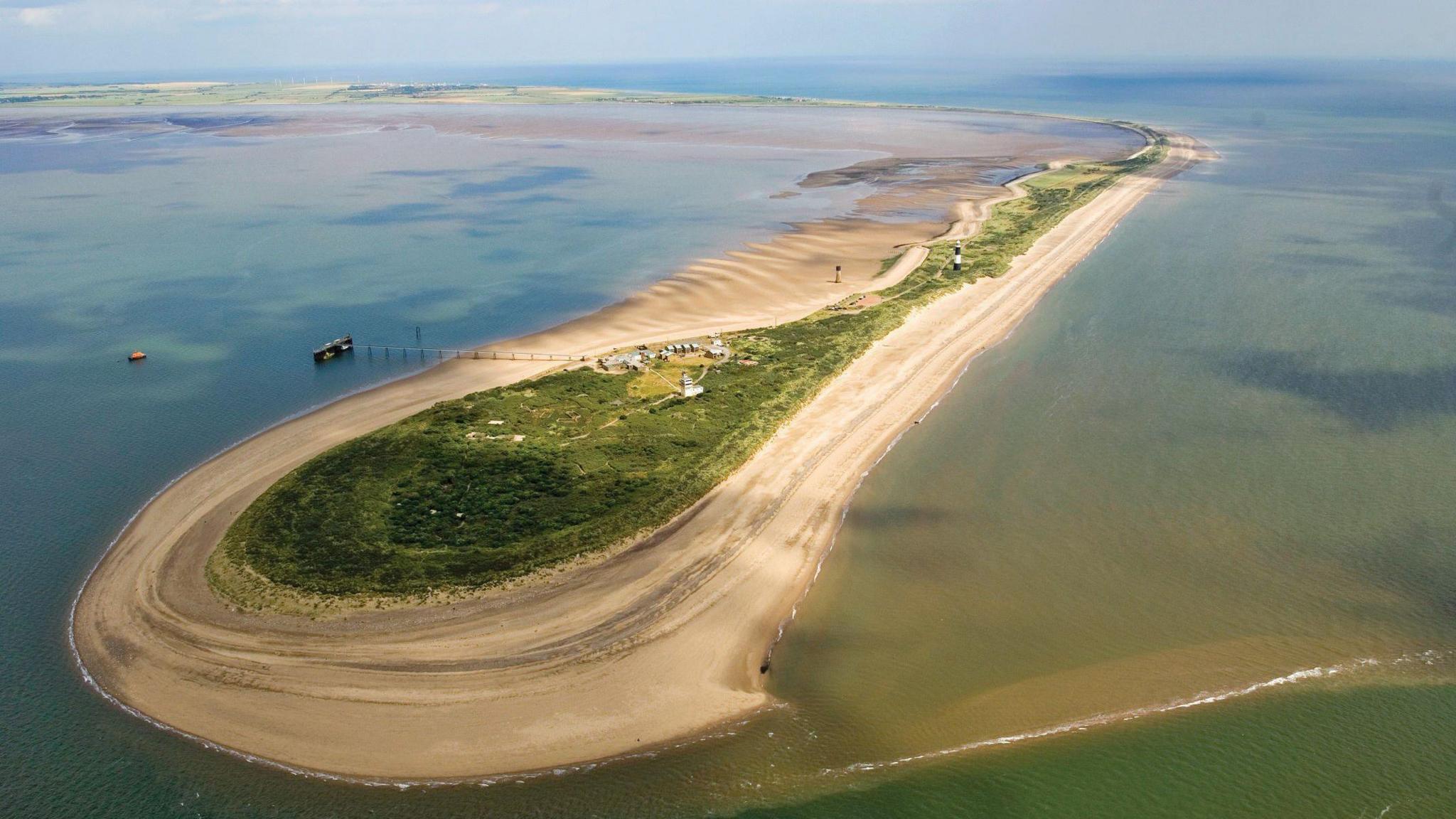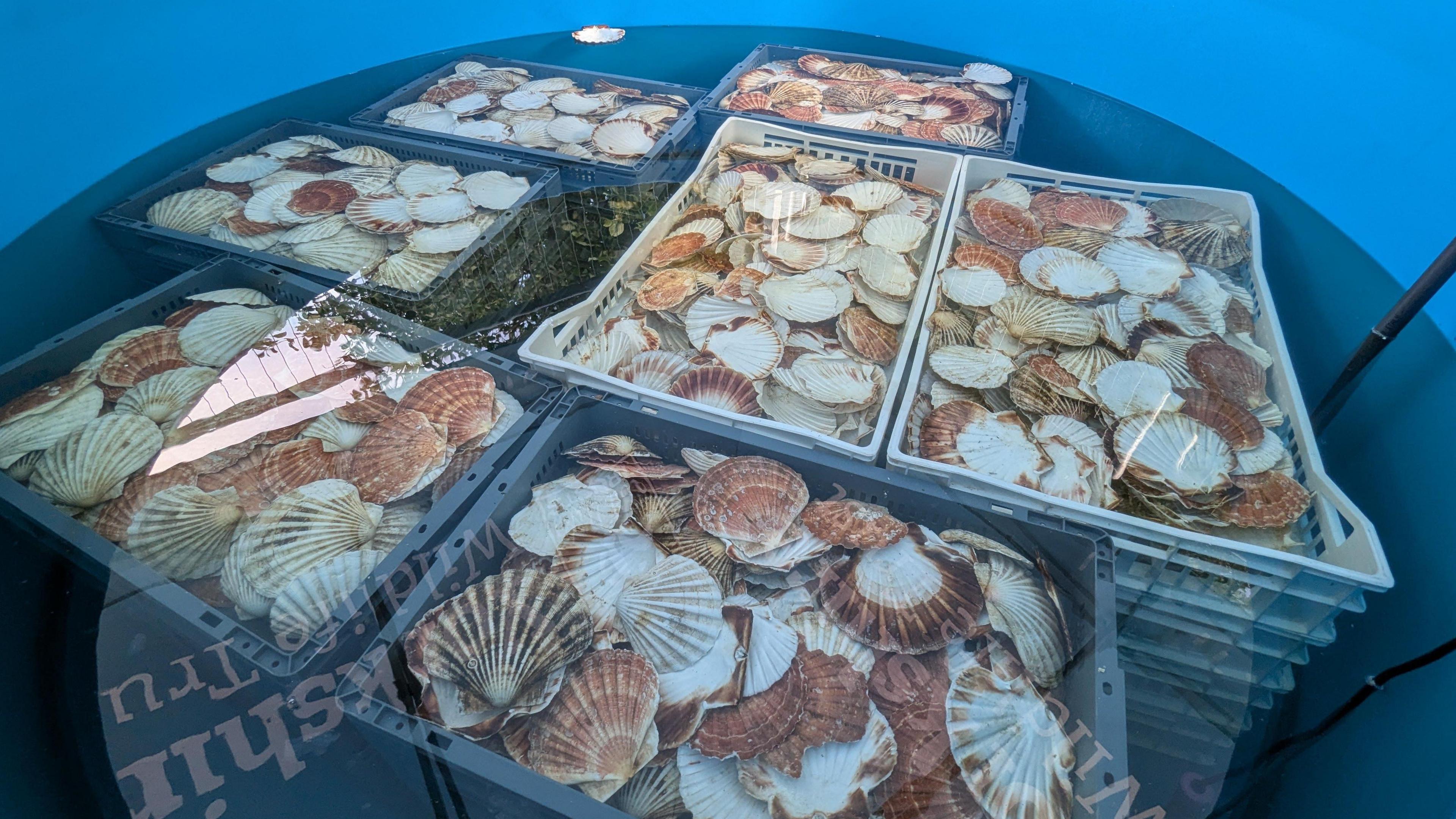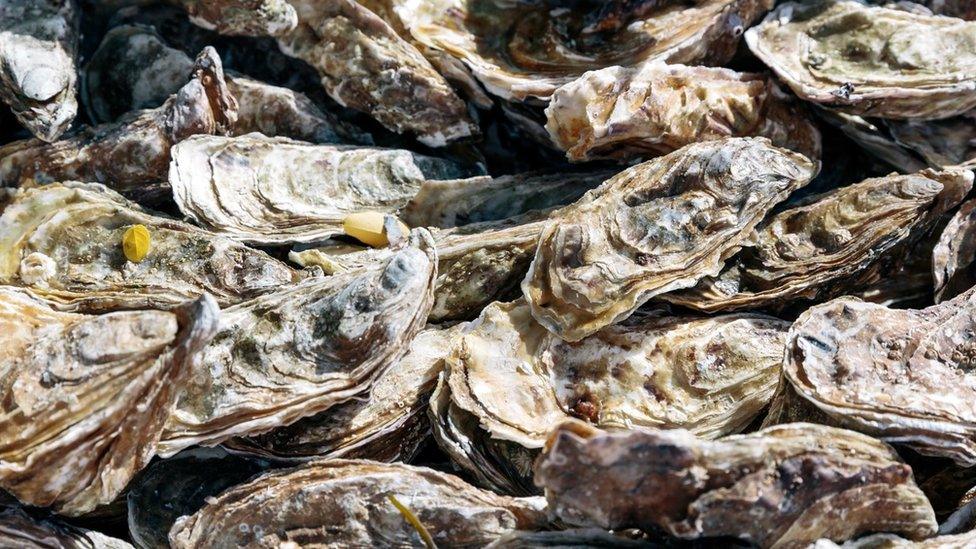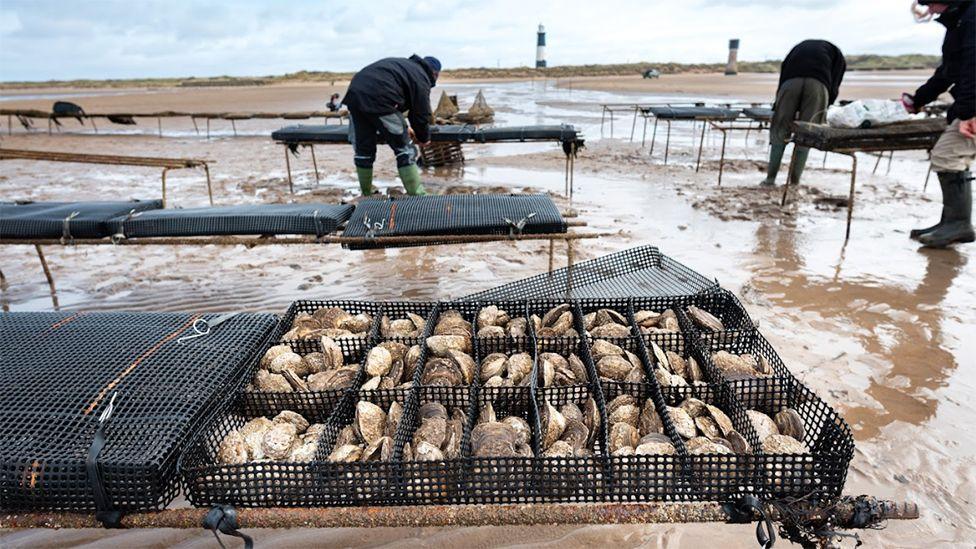Oysters reintroduced as new technique trialled

Larvae was attached to scallop shells and transferred to an oyster nursey at Spurn Point
- Published
Oysters are to be released into the Humber Estuary in a technique described as a UK first.
The method, known as remote setting, has involved growing the shellfish by placing oyster larvae in a tank filled with scallop shells.
They will now be moved into the estuary and scientists will evaluate how it compares with the traditional method of directly placing individual juvenile and adult oysters on to the seabed.
It is part of a Wilder Humber project which aims to reintroduce 500,000 native European flat oysters to the estuary over five years.
The estuary was once home to a thriving oyster reef that was so large it was listed as a hazard to shipping, Wilder Humber said.
However, overfishing, disease and a reduction in water quality led to a decline.
Andy van der Schatte Olivier, marine programme manager at Yorkshire Wildlife Trust, said the project would bring back a lost species and demonstrate how innovation, collaboration, and nature-based solutions could tackle biodiversity loss and climate change.

The oyster larvae was attached to scallop shells submerged in a large tank
During the first phase of the project, the larvae was attached to the shells and transferred to an oyster nursey at Spurn Point to grow.
According to Yorkshire Wildlife Trust, 18% of the larvae survived compared with a 10% survival rate of oysters placed directly on the seabed.
Laura Welton, native oyster restoration officer at the trust, said remote setting could transform how native oyster populations are restored, reducing transportation stress and increasing their chances of survival.
She said: "Trialling this alongside the traditional method gives us vital insights into how to scale up restoration more efficiently and effectively.
"This experiment is a key step toward restoring thriving oyster reefs in the Humber, across the UK, and beyond."
Listen to highlights from Hull and East Yorkshire on BBC Sounds, watch the latest episode of Look North or tell us about a story you think we should be covering here, external.
Download the BBC News app from the App Store, external for iPhone and iPad or Google Play, external for Android devices
- Published29 June 2022

- Published4 September 2024
